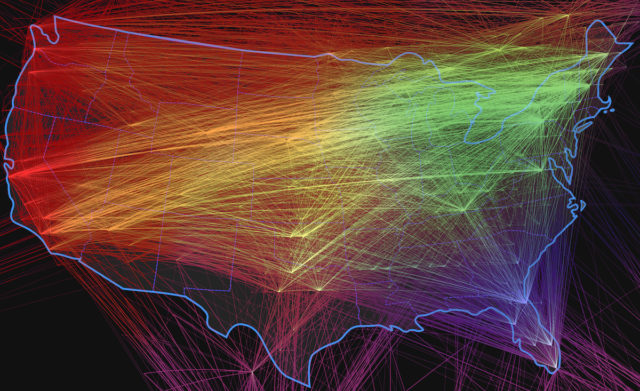
The gap between those who have broadband access in Oklahoma and those who do not has been widening for a long time. It was a significant problem for our state before COVID-19 and became a major crisis after we entered the pandemic and a huge range of activities moved online.
According to the latest data from the U.S. Census Bureau, Oklahoma is one of the least connected states in the country, ranking 48th nationwide for Internet-connected households. Like the other least connected states, Oklahoma has a high rural population (nearly 34 percent) and a high rural poverty rate (nearly 18 percent).
According to a recent White House fact sheet, 24 percent of Oklahomans live in areas where there is no broadband infrastructure that meets the standard of minimally acceptable speed — a low threshold that will not serve our communication needs in the years to come. Moreover, 55.5 percent of Oklahomans live in areas with only one internet provider.
In addition, according to data collected by Microsoft through its cloud services network over the past 18 months, in 44 of Oklahoma’s 77 counties, less than 15 percent of households are using the internet at adequate broadband speed.
These days, internet access and broadband connectivity aren’t just a convenience. They are necessary for daily life functions and are becoming ever more critical. Internet access is important to mental health simply because it has an enormous impact on quality of life and a person’s ability to connect with the outside world.
More specifically, from a mental health care provider’s perspective, being able to deliver clinical care through telehealth has proven hugely beneficial. As the need for crisis care has increased during the pandemic, we have seen that it is vital for people to have the immediate access telehealth provides. All Oklahomans deserve to have the benefits and access broadband provides.
The internet touches all aspects of life
In the mental health field, we often talk about social determinants of health. Simply put, social determinants of health are the physical, social and economic conditions in which people are born, grow, live, work and age. They can include things such as food security, employment, access to education and relationships with family and friends.
These factors play a large role in a person’s overall quality of life and their risk of addiction and mental illness.
In today’s world, internet access is tied to a great number of social determinants of health. It is largely through the internet that people access government services, communicate with others and have contact with the wider world.
Broadband boosts access to jobs and economic opportunities, which have a direct impact on mental health. Unemployment is consistently associated with high rates of depression. Broadband also boosts access to education and training. It can help ensure children get the help they need with homework assignments and can even allow them to attend online school in the event of, say, a pandemic.
With high-speed internet, people living in the most remote locations can earn online degrees and certifications or gain the digital skills employers demand. Moreover, broadband access can help foster social support and connections as well as engagement in the democratic process.
More directly, broadband access can have a positive impact on mental health by offering people access to mental health care. Mental health conditions are the top reason people use telehealth. Those in rural communities especially benefit from online health care simply because they might not have similar resources nearby. Furthermore, people who previously refused to seek mental health treatment because of stigma can feel safer and less exposed when they seek treatment online.
Legislative efforts must continue
Oklahoma is a state with a high rate of mental illness and substance use disorders. We were still reeling from the opioid crisis when the pandemic created the worst mental health crisis in my 30-year career. Depression, anxiety, addiction, and suicide rose dramatically.
The best thing our leaders can do to help improve mental health and reduce the risk of substance abuse among Oklahomans is to support public policies that promote health and help thwart damaging social norms. Increasing broadband access is one aspect of this effort.
Broadband is not a silver bullet for any of Oklahoma’s problems — there are no silver bullets — but lack of broadband access does jeopardize the mental health of our citizens.
The internet is now part of daily life, and it will only become more integral to our lives as time goes on. It is critical infrastructure, not a luxury. Every American should have equitable access to the internet and should have the opportunity to learn how to use it.
In recent years, Oklahoma has made great strides in increasing broadband access. In 2020, the Legislature passed the Oklahoma Rural Broadband Expansion Act and created the Rural Broadband Expansion Council.
I, along with my colleagues with the Alliance of Mental Health Providers of Oklahoma applaud these efforts and encourage those working to bring universal broadband access to Oklahoma to consider another far-reaching benefit of this work: the mental health of our citizens.






















